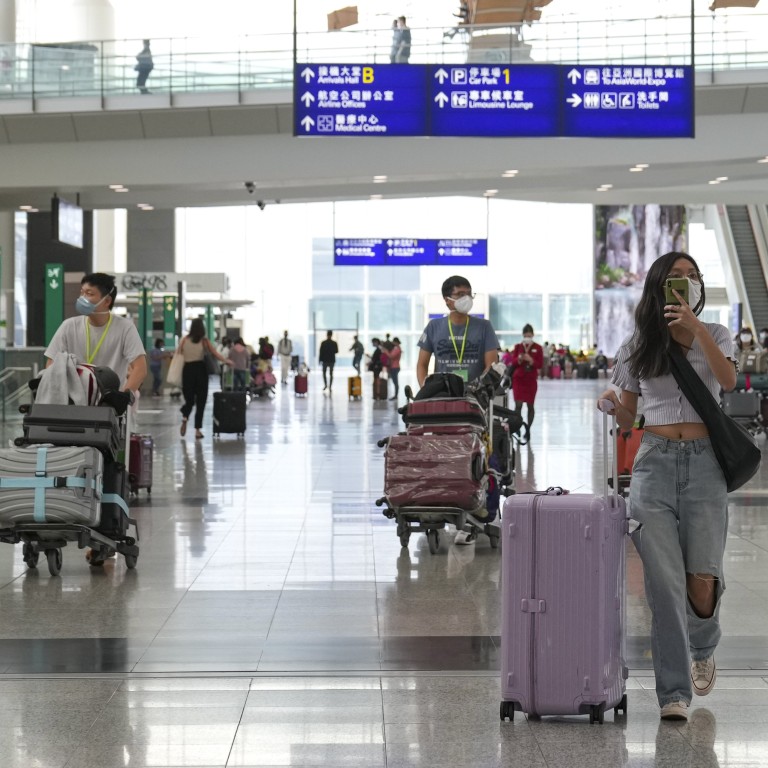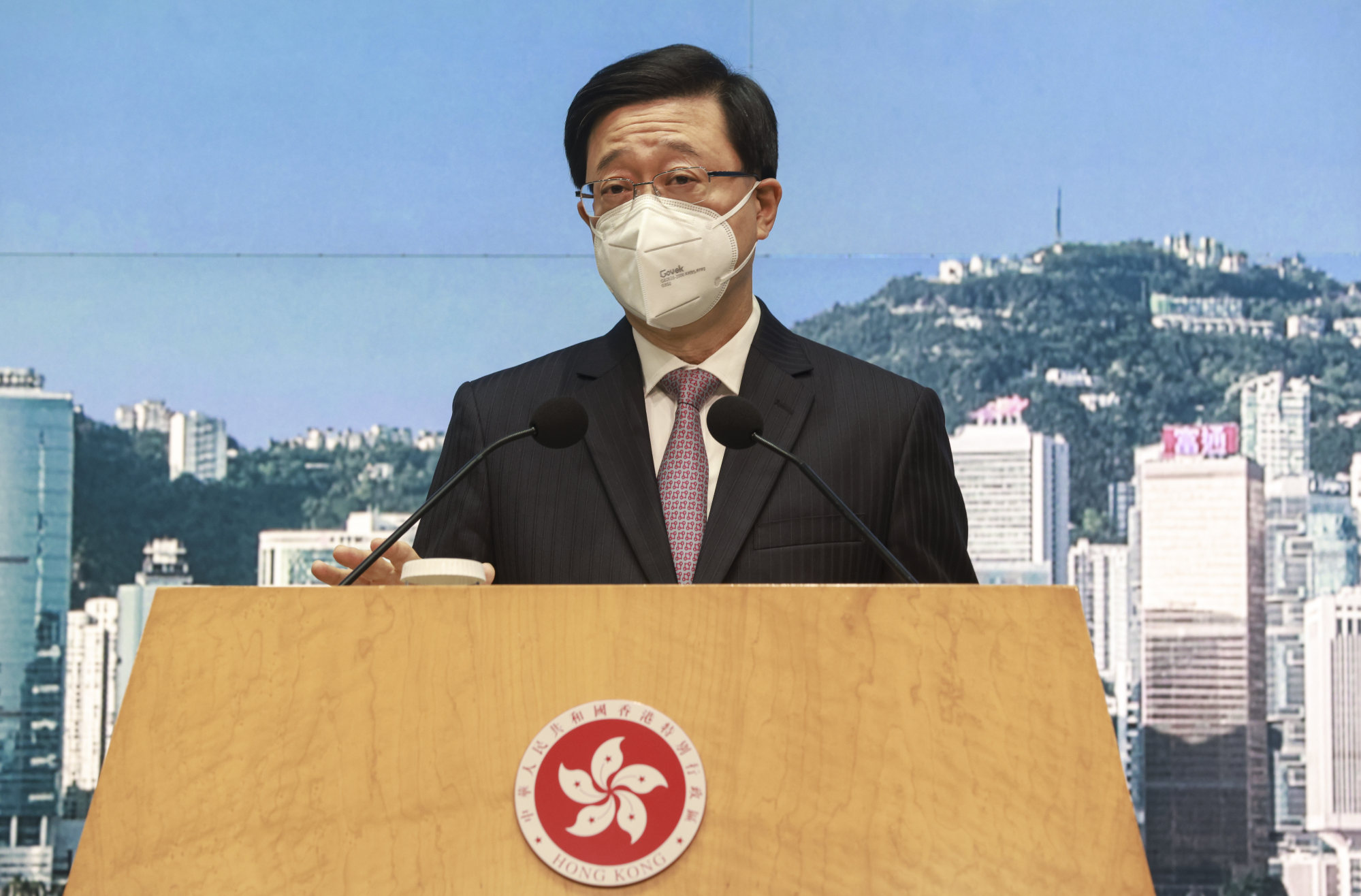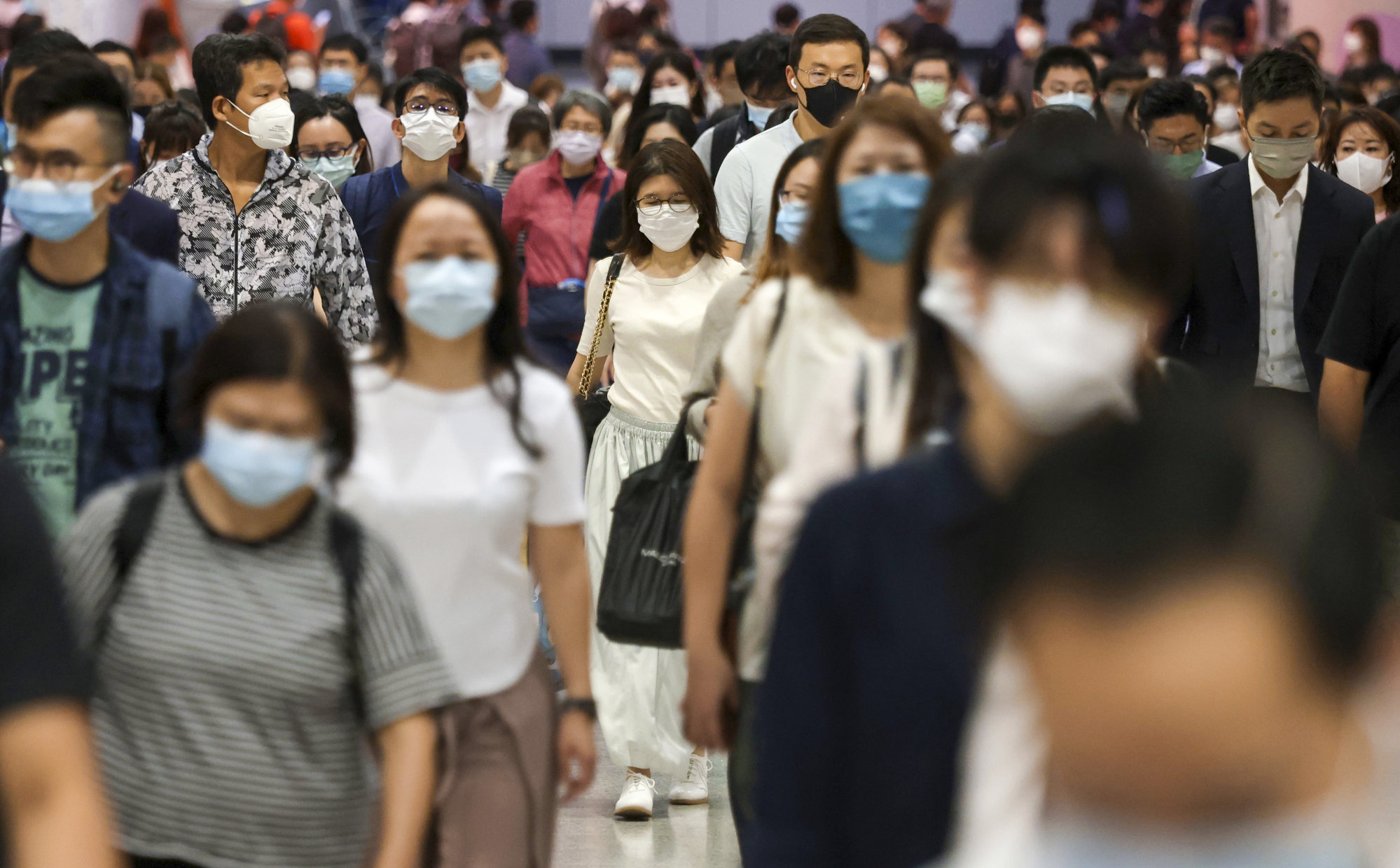
Coronavirus: Hong Kong not ready yet to lift last entry restrictions on arrivals, John Lee says citing rising infections
- Chief Executive John Lee says keeping Covid situation under control will provide ‘a much stronger basis’ in talks on reopening border with mainland China
- Lee notes upwards trend in daily infections while number of imported cases has risen to about 300 a day since hotel quarantine was removed
Hong Kong’s leader has cautioned against pushing ahead with lifting three days of medical surveillance for inbound travellers, saying “a steady and orderly” approach is needed as imported coronavirus cases have seen a more than twofold increase since hotel quarantine was axed.
Chief Executive John Lee Ka-chiu, who has faced mounting pressure from the business sector to get the border with mainland China fully reopened, also said that keeping the pandemic situation under proper control would provide “a much stronger basis” for talks on the situation.
“The proportion [of imported cases] is quite large, and new subvariants have also entered Hong Kong,” Lee said before the Executive Council’s weekly meeting on Tuesday.
“Even though the current assessment is that the harm they may cause might not be bigger than the existing virus in our communities, we need to pay attention.”

Health officials on Tuesday recorded 4,656 infections, 373 of which were imported, and nine more deaths. The city’s overall tally stands at 1,811,344 cases and 10,237 related fatalities.
Lee, meanwhile, explained that his administration would need to pay attention to a variety of considerations as they developed new policies.
“First, would the number of infections increase, and can our healthcare system cope? Also, would any sudden change and unexpected situation emerge in our overall anti-epidemic strategy,” he said, referring to the emergence of new variants around the world.
“We have to beware of the changes in data and the pandemic. Each measure should be introduced in a step-by-step, steady and orderly manner.”
He added: “Our direction is clear – we want to allow society the biggest room to engage in social and economic activities.”
Hong Kong is finally axing hotel quarantine – here’s what you need to know
Citing official figures, Lee noted an upwards trend in daily infections, which were hovering at below 5,000, while the number of imported cases had more than doubled to more than 300 a day recently, compared with about 100 when the mandatory hotel quarantine was in force until September 25.
During the past two weeks under the “0+3” regime, the number of arrivals had increased by 30 per cent, exceeding 7,000 on Monday. The number of foreign travellers arriving in Hong Kong had risen by 80 per cent, he added.
Dr Thomas Tsang Ho-fai, an honorary consultant with the Department of Health, had earlier stressed the importance of maintaining anti-epidemic curbs, such as requiring travellers to conduct polymerase chain reaction (PCR) tests to screen for new variants.
Health officials on Monday reported the city’s first imported case of Omicron subvariant XBB.1, which experts considered to be more transmissive than other strains.

Asked if he was waiting for the central government’s permission to further relax travel restrictions to a “0+0” regime from “0+3”, Lee on Tuesday said he was seeking to reopen Hong Kong to the mainland as well as the rest of the world.
“They are not mutually exclusive and they don’t contradict each other. But if I can manage the epidemic situation well, we can have a much stronger basis to discuss cross-border travel with the mainland,” he said.
“I hope society will not use either of them to exclude the other, both are important, and we are fighting for both causes.”
The new regime had allowed Hong Kong to hold more sports events and concerts, and offered convenience for business travellers and foreign domestic helpers, he said.
But Dr Leung Pak-yin, a former chief executive of the Hospital Authority, argued the key metric for determining whether to relax entry curbs was the severity of Covid-19 strains detected among arrivals rather than the number of imported cases.
Court puts temporary ban on Hong Kong invalidating 20,000 Covid jab exemptions
Leung added that he hoped the government would announce details on whether they would pursue the “0+0” plan at Lee’s maiden policy address on October 19.
“Time waits for no man. Hopefully, the government will provide good news at the policy address,” he wrote on social media.
The former public healthcare chief also backed the government’s decision last week to increase the number of community testing centres from 71 to 85, saying the move could provide “regular monitoring and sequencing of imported viruses” if authorities opted to further ease entry restrictions.
Respiratory medicine specialist Dr Leung Chi-chiu said he also thought that imported cases posed a low risk to the city in comparison to city ones.
“Even if [the number of imported infections] has increased as the chief executive said, it is still dwarfed by the thousands of local cases reported daily,” he added.
He said the anti-epidemic measures carried out at present at Hong Kong’s border were sufficient to detect imported pathogens, citing the extensive PCR testing requirements for inbound travellers on arrival and three further screenings over the next seven days.
Hong Kong No 2 official doubles down on ‘0+3’ Covid rule, insists city can’t ‘lie flat’
Separately, former leader Leung Chun-ying told a forum on Tuesday afternoon the government needed to address any misapprehensions held by foreign companies interested in conducting business in Hong Kong.
“To attract overseas companies to Hong Kong again, ‘0+0’ and ‘0+3’ are important factors, but not the only factors. I think we must also resolve their misconceptions about the city’s political situation, including ‘one country, two systems’, ‘high degree of autonomy’ and judicial independence,” he said.
“Three months ago, I led a delegation to visit Japan and South Korea. I feel that while they agree with Hong Kong’s economic prospects, they have many misunderstandings about our political situation,” Leung added, but stopped short of clarifying what misconceptions were raised during the trip.


